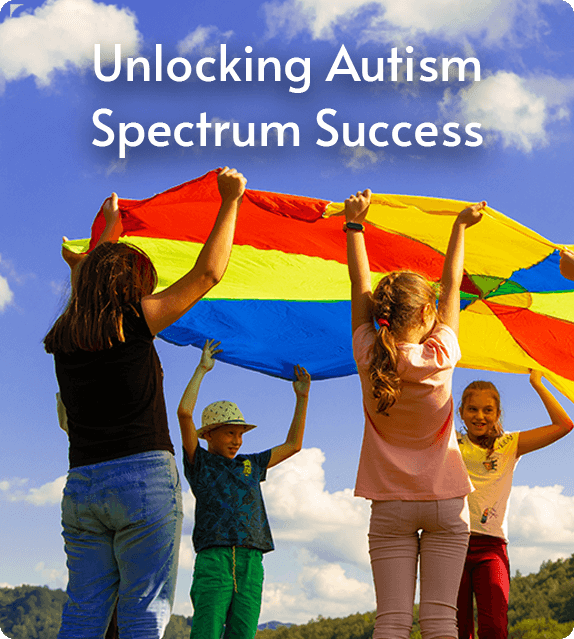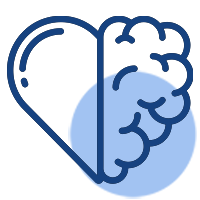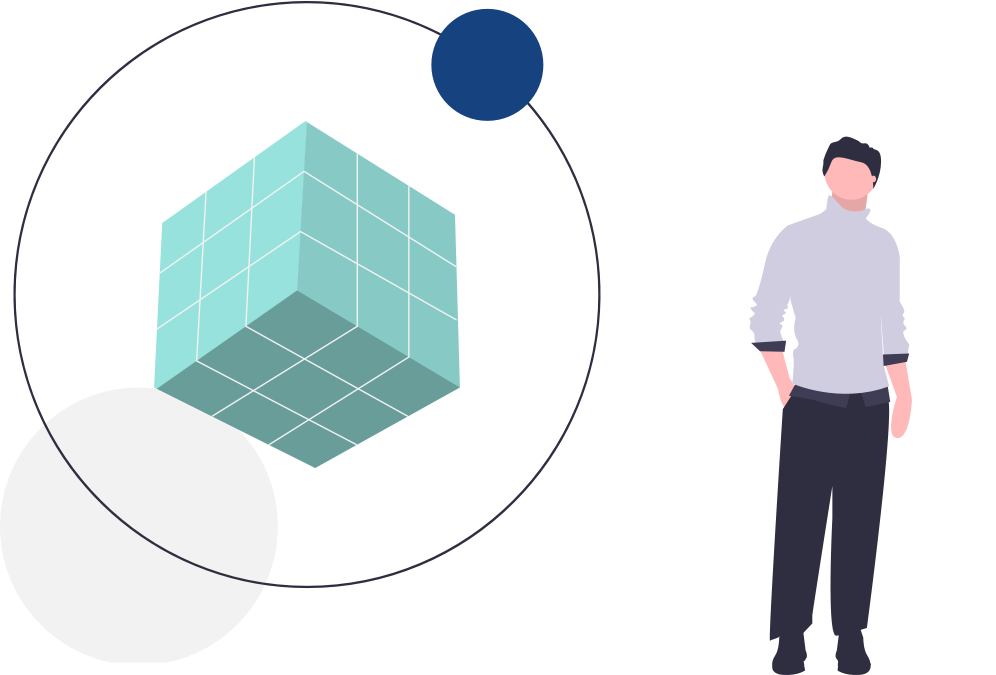Emotional Regulation and Communication Techniques for Autism Spectrum
£ 199.00

Holistic approach to autism support
While many courses focus on isolated aspects of
autism, our course encompasses a comprehensive
spectrum of knowledge and skills, ensuring that you
gain a deep understanding of effective communication,
nutrition, sensory integration, and emotion regulation
techniques. This holistic perspective equips you to
address the unique needs of individuals on the autism
spectrum from a well-rounded standpoint, making it the
ultimate guide to success in this field.
Comprehensive Learning and Practical Skills
In essence, this course is designed to empower you with comprehensive knowledge and practical skills, transforming you into a confident and effective advocate for individuals on the autism spectrum. By enrolling in "Emotional Regulation and Communication Techniques for Autism Spectrum," you embark on a holistic journey that equips you to make a profound and lasting difference in the lives of those you support.
Key Advantages of the course

Holistic Approach
Emotional Regulation and Communication Techniques for Autism Spectrum stands out due to its holistic approach. It doesn't just focus on one aspect of autism support; it covers effective communication, nutrition, sensory integration, and emotion regulation. This comprehensive perspective equips participants to address the diverse and unique needs of individuals on the autism spectrum, making it a complete guide to success in this field.

Practical Application and Convenience
This program goes beyond theoretical knowledge, offering participants hands-on exercises, case studies, and real-life scenarios. This practical approach ensures you not only gain insights but also acquire the skills needed to make an immediate and tangible impact in your profession or caregiving role.

Key Advantages of UniqSkills
Flexible Learning: Uniqskills offers a user-friendly platform that allows participants to access course materials and complete assignments at their own pace, accommodating various schedules.
Expert Instructors: Courses on Uniqskills are taught by experienced professionals and subject matter experts, ensuring high-quality education.
By completing the course, participants will:
- Become Autism Experts: Gain in-depth expertise in autism spectrum disorders, making you a sought-after authority in the field.
- Transform Lives: Acquire practical skills that enable you to create significant positive changes in the lives of individuals on the autism spectrum.
- Enhance Career Prospects: Professionals will find new career opportunities and advancement possibilities, fueled by their specialised knowledge and skills.
- Achieve Personal Fulfillment: Educators and caregivers will experience profound personal growth and satisfaction as they witness the positive impact of their efforts.
- Empower Individuals: Equip individuals on the autism spectrum with the tools and support they need to thrive and succeed.
- Master Holistic Approaches: Understand and apply holistic approaches that cover communication, nutrition, sensory integration, and emotion regulation, ensuring comprehensive support.
- Adapt to Unique Needs: Learn to tailor your support to meet the unique needs of each individual, promoting a person-centered approach.
- Improve Communication: Develop effective communication techniques that foster trust, understanding, and meaningful connections.
- Optimise Nutrition: Utilise nutritional expertise to create customised dietary plans that support cognitive development and overall well-being.
- Excel in Sensory Integration: Master sensory integration techniques to create positive sensory experiences and minimise sensory-related challenges.
- Navigate Emotions: Explore emotion regulation strategies to help individuals manage their emotions effectively, reducing stereotypical behaviours and enhancing emotional well-being.
- Experience Real-Life Scenarios: Engage in practical exercises, case studies, and real-life scenarios that simulate the challenges you'll face in your profession or caregiving role.
- Receive Expert Guidance: Benefit from expert-led instruction by seasoned professionals with practical experience in the field.
- Access Flexibility: Enjoy the flexibility of learning at your own pace, accessing course materials and assignments according to your schedule.
- Convenience: Access the course conveniently through the user-friendly platform uniqskills.co.uk, accommodating various schedules and commitments.
- Boost Confidence: Gain the confidence to tackle complex challenges and make a significant difference in the autism support community.
- Promote Inclusivity: Advocate for inclusivity and acceptance, promoting a more inclusive society for individuals on the autism spectrum.
Discover Why Course Is the Ideal Step in Your Educational Journey:

Why This Course Should Be Your Next Educational Step:
Holistic Approach: This course stands out due to its holistic approach, covering a wide spectrum of skills crucial for effective autism support.
Real-World Application: Unlike many other courses, this program emphasises practical application through hands-on exercises, case studies, and real-life scenarios.
Flexibility: Enjoy the flexibility of learning at your own pace through the user-friendly platform uniqskills.co.uk, accommodating your schedule.
Expert-Led Instruction: Benefit from expert-led instruction by seasoned professionals with practical experience in the field.
Confidence Building: Gain the confidence to tackle complex challenges and make a significant difference in the autism support community.
Inclusivity Advocacy: Advocate for inclusivity and acceptance, contributing to a more inclusive society for individuals on the autism spectrum.

Is This Course Worth Trying? Absolutely!
- You'll become a well-rounded expert in autism support.
- Practical skills ensure immediate, positive impact.
- Boost your career prospects and open new doors.
- Personal growth and fulfillment await educators and caregivers.
- A holistic approach sets this course apart.
- Real-world application ensures you can apply what you learn.
- Flexibility accommodates your busy schedule.
- Expert instructors guide your journey.
- Gain confidence and advocate for inclusivity.
What will you gain by taking part in the course?

New, current threads
During the lectures of this course, participants will gain in-depth insights into the complexities of autism spectrum disorders, equipping them with a comprehensive understanding of communication, nutrition, sensory integration, and emotion regulation. They will receive practical guidance on how to apply these insights effectively in real-world scenarios, fostering meaningful connections and transformative support for individuals on the autism spectrum. This course empowers participants to recognise the profound importance of their role in enhancing the lives of those with autism, making it an invaluable educational journey.

New skills
Participants in this course will acquire a diverse set of skills, including effective communication techniques tailored for individuals on the autism spectrum, nutritional expertise to support cognitive development, proficiency in sensory integration strategies, and the ability to implement emotion regulation techniques. These skills enable participants to make an immediate, positive impact on the lives of those with autism, fostering their well-being and success. Ultimately, this course equips individuals with a holistic skill set that transcends theoretical knowledge, allowing them to create meaningful change in their professional or caregiving roles.

Practice
Participants in this course will engage in extensive practical exercises, immersive case studies, and real-life scenarios, providing them with hands-on experience in applying their newfound knowledge and skills. They'll practice effective communication techniques in diverse situations, create customised dietary plans, implement sensory integration strategies, and navigate emotion regulation scenarios. This practical approach ensures that participants not only understand the concepts but also develop the confidence and competence to make a tangible impact in autism support.

Availability
Experience round-the-clock availability to course materials on any device, allowing for convenient learning at your chosen time and location. Utilise downloadable resources such as notes, videos, slides, and assessments to bolster your comprehension, driving better outcomes. Embrace the freedom to learn at your individual pace and leverage a comprehensive online learning experience accessible throughout the entire year.

Certification of Completion
Upon successful completion of the course, participants will receive a personalised certificate verifying their active participation and achievement.
This valuable document can be easily accessed and downloaded from the 'my panel' section within the UniqSkills platform.
This certificate serves as a tangible testament to your newly acquired skills, enabling you to proudly present your expertise to potential employers and within your professional network.
Syllabus:
Introduction To Emotion Regulation Work With Individuals On The Autism Spectrum
Effective Communication With Individuals On The Spectrum
Emotion Regulation Techniques For Children And Youth On The Spectrum
Emotion Regulation Techniques For Children And Youth On The Spectrum
Dietary Strategies Supporting The Functioning Of Children And Adults On The Spectrum
Module 1: Introduction To Emotion Regulation Work With Individuals On The Autism Spectrum
- Recent research on the importance of emotion regulation mechanisms in the social functioning of individuals with ASD. How do emotion regulation issues exacerbate social-communication deficits, stereotypes, and sensory behaviours?
- Common emotional functioning difficulties in children with ASD that hinder their adaptation to new and unstructured situations, including maladaptive avoidance strategies, difficulties in developing theory of mind, rigidity in emotional and behavioural reactions.
- How to adapt activities and actions to the child's individual predispositions? Examples of developmental activities tailored to the child's intellectual level.
- Organising psychoeducational meetings for parents, effective ways to involve caregivers in the therapeutic process – examples of activities.
Module 2: Effective Communication With Individuals On The Spectrum
- Low motivation in individuals on the spectrum – tangible motivators, supportive communication examples, effective strategies that will help you see the results of therapy.
- What elements of communication are important in cases of emotional regulation difficulties in individuals with disrupted development? How to name emotional states in situations where they arise?
- "You're tired," "you don't like this," "you have a problem," "you don't know what to do" – how to develop self and other awareness? The role of naming the child's and caregiver's actions and emotional states.
- Using AAC to support the communication of individuals on the autism spectrum.
- The effectiveness of group interventions when working with children under 7 years of age. How to prepare a child for communication with peers?
Module 3: Emotion Regulation Techniques For Children And Youth On The Spectrum
- Stimming, stereotypes, rituals... – the significance of self-stimulating behaviours in children on the spectrum – how to support children with ASD in finding effective ways to cope with tension?
- Tools to support learning social rules, helping understand situational expectations, emotional and behavioural reactions of others, analysing past and creating future social behaviour scenarios, e.g., The Incredible 5 Point Scale.
- Learning to distinguish the intensity of experiencing and expressing emotions – tools for measuring emotions, e.g., "emotion thermometers" through which the child assigns numerical values to emotions illustrated with pictures, movies, or stories.
- Learning to cope with anger – effective cognitive-behavioural therapeutic interventions using visual aids and play-based activities.
- Proven strategies for teaching new skills and reinforcing socially significant behaviours. Examples of positive reinforcement exercises.
- Psychodrama and theatrical techniques in therapy – social skills exercises for children with emotional regulation and communication challenges.
Module 4: Therapeutic Strategies Supporting Sensory Integration Disorders In Children On The Spectrum
- Coping with stimuli by individuals with autism spectrum disorders. The impact of sensory disorders on the behaviour, self-esteem, learning, and communication of individuals on the spectrum.
- The specifics of Sensory Integration therapy for individuals with autism and stimulating communication skills during SI therapy.
- Supporting postural mechanisms and motor planning.
- Reducing unwanted behaviours through Sensory Integration therapy.
- The role of Sensory Integration in acquiring social competencies.
Module 5: Dietary Strategies Supporting The Functioning Of Children And Adults On The Spectrum
- The impact of diet and eating habits on the behaviour and psycho-physical development of individuals on the autism spectrum – a review of current scientific research.
- Dietary patterns in individuals with neurodevelopmental disorders – how to plan work with parents of a child on the spectrum or an adult who fears new products and presents selective eating habits.
- Specific microbiome and gastrointestinal symptoms (digestive disorders, motor disorders, food intolerances) – how to support the gastrointestinal system of individuals with autism through appropriate nutrition?
- Examples of diets tailored to the individual needs of autistic individuals – methods for alleviating gastrointestinal symptoms, reducing hyperactivity, improving concentration, enhancing sleep quality, and overall health and functioning of the child.
How do customers rate the course?
I implemented the strategies I learned in this course, tailored to each student's needs. It was amasing to see the transformation. The classroom became calmer, and my students were better able to concentrate on their lessons. They seemed more comfortable and engaged, and I could tell they were enjoying their learning experience more. Highly Recommended!
After completing this course as a caregiver, I gained a deep understanding of effective communication techniques. My client's communication skills improved significantly,
I took this course to boost my career. It was so easy to start, and now, I'm excelling in my autism support profession.
Order this course
THIS ADVANCED ONLINE COURSE INCLUDES:
Emotional Regulation and Communication Techniques for Autism Spectrum
- 100% Online Learning
- 24/7 access to a modern platform
- Expert Trainer
- Perfect for aspiring professionals
- Access on mobile and tablets
- Study when and where you like
- Hours of on-demand videos
- Downloadable resources
- Multiple-choice Test
- Certificate of completion
- Suggested study: 6 months, 6 hrs per weekk
Are you interested in making a purchase? Leave us youremail address, and we'll get back to you with anoffer!
Course Quality Guarantee ✔
